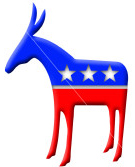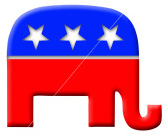|
AP AMERICAN GOVERNMENT Unit 2: The Constitution and Federalism 1/23 - 2/8 |
||||||
|
||||||
|
WEEK 3 1/21 - 1/25 |
||||||
| LESSON | IN CLASS | ASSIGNMENTS | ||||
|
Wednesday Lesson 1 |
|
Read: Magelby 24th, Chapter 1 pp. 27-38 (This is Chapter 1, pp. 11-17 in the Brief Edition) Homework: Bring Electronic Device tomorrow for Chapter GRQs! |
||||
|
Thursday Lesson 2 |
ESSENTIAL QUESTIONS: Why did the Articles of Confederation fail?
|
Read: Magelby 24th, Chapter 2 pp. 43-54 (This is Chapter 1, pp. 20-28 in the Brief Edition) Bring: Electronic Device for Chapter GRQs! Assignment: GRQ Unit 2, Part 1 Answers must be In Your Own Words. This MUST be turned in BEFORE the end of class today--any assignment turned in late will be penalized 1 point. |
||||
|
Friday Lesson 3 |
ESSENTIAL QUESTION: What were the philosophical foundations for the American government? |
Read: Magelby 24th, Chapter 2 pp. 56-62 (This is Chapter 1, pp. 28-32 in the Brief Edition)
Assignment: In groups, read the excerpt from your assigned
document, and OUTLINE the ideas and conclusions to present to the class.
Answers must be In Your Own
Words. Your groups' outline MUST be turned in BEFORE the end of class today--any assignment turned in late will be entered as an NS in the gradebook. |
||||
|
WEEK 4 1/28 - 2/1 |
||||||
| LESSON | IN CLASS | ASSIGNMENTS | ||||
|
Monday Lesson 4 |
ESSENTIAL QUESTION: How was the Great Compromise successful? How was it flawed?
|
Read: Magelby 24th, Chapter 3 pp. 77-88 (This is Chapter 2, pp. 44-50 in the Brief Edition) Quiz: Open GRQ quiz on Chapter 1 Quiknotes: Unit 2 Part 1 Powerpoint Homework: Bring Electronic Device Tuesday for Chapter GRQs! |
||||
|
Tuesday Lesson 6 |
ESSENTIAL QUESTION: Where is Sovereignty located in the American political system?
|
Read: Magelby 24th, Chapter 3 pp. 88-93 (This is Chapter 2, pp. 50-60 in the Brief Edition) Bring: Electronic Device for Chapter GRQs! Assignment: GRQ Unit 2, Part 2 A great reference is the official US Senate Annotated Constitution linked here! Answers must be In Your Own Words. This MUST be turned in BEFORE the end of class today--any assignment turned in late will be penalized 1 point. |
||||
|
Wednesday Lesson 7 |
ESSENTIAL QUESTION: What are Implied Powers and how do they effect Federal State relations?
|
Read: Magelby 24th, Chapter 3 pp. 93-98 (This is Chapter 2, pp. 61-68 in the Brief Edition)
Quick Notes:
Unit 2 Powerpoint Part 2
Watch the following video: How does Governor Romney's speech fit with the Founders' views on Federalism? |
||||
|
Thursday |
No School | |||||
|
Friday Lesson 5 |
Democracy in America #2: Fixed or Flexible? Video Questions:
|
Watch:
Democracy
in America #2: Fixed or Flexible? Be prepared to answer a short quiz based on the questions listed after the video, and discuss the answers. |
||||
|
WEEK 5 2/4 - 2/8 |
||||||
| LESSON | IN CLASS | ASSIGNMENTS | ||||
|
Monday Lesson 8 |
ESSENTIAL QUESTION: How has the balance between the Federal government and state governments changed?
|
Read: Magelby 24th, Chapter 3 pp. 93-98 (This is Chapter 2, pp. 61-68 in the Brief Edition)
Quick Notes:
Unit 2 Powerpoint Part
3
|
||||
|
Tuesday Lesson 9 |
Video Questions:
|
Read: Magelby
24th, Chapter 6 pp. 157-168 (This is
Chapter 5, pp. 145-153 in the Brief Edition) Watch: Crackpots Be prepared to answer a short quiz based on the questions listed during the video, and discuss the answers. |
||||
|
Wednesday Lesson 9 |
ESSENTIAL QUESTION: How has our interpretation of Federalism changed over time?
|
Quiz: Open GRQ quiz on Constitutional Federalism, Chapters 2 -3 Assignment: Complete the Crisis Management ExerciseAnswers must be In Your Own Words. This MUST be turned in BEFORE the end of class today--any assignment turned in late will be penalized 1 point. |
||||
|
Thursday Lesson 10 |
|
Review Unit 1 and 2: Use online chapter notes, GRQs, and Textbook site practice section quizzes.
Textbook site practice section quizzes. |
||||
|
Friday Lesson 11 |
|
Bring:
Pencil for Unit 2 test This test will consist of 35 multiple choice questions, 5 definition questions, and one brief essay from the material and concepts in Units 1 and 2. The test will be counted out of 50 points. |
||||



